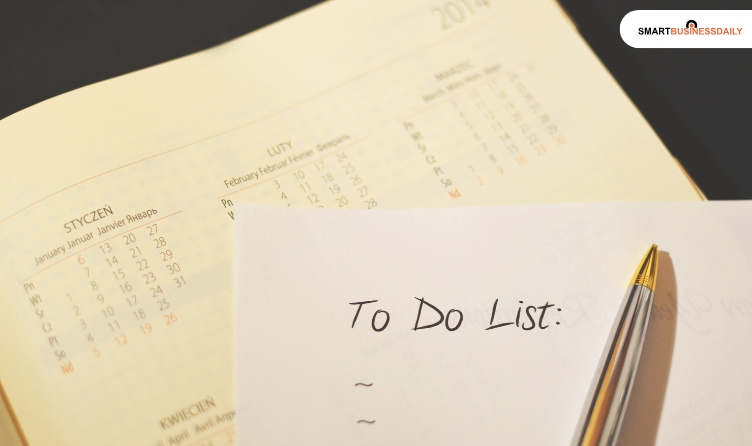Novice’s Guide to Event Planning Checklist You Need to Succeed in 2025
7 Mins Read
Published on: 21 October 2024
Last Updated on: 01 February 2025

toc impalement
Starting an event-planning business is one thing, but coming up with an event-planning checklist is entirely different from a ball game. You have entered this industry. You have the client, but now what?
Well, this article will help you with that. In this article, we will look at the comprehensive stages of planning your event as a budding professional event planner. Let’s not waste a minute and start with the biz fundamentals.
What Is an Event Planning Checklist?

Managing events sounds breezy. Well, think again. Managing an event might be one of the most stressful jobs on the planet.
Do not think planning a corporate or professional event is close to planning your cousin’s bachelorette. It is a highly complex job that requires skills and a comprehensive event-planning checklist.
But first, let’s understand what an event planning checklist is. An event planning checklist’s primary job is to list all the things that need to be done to make an event successful.
This list must be comprehensive and include essential components like time, goal, budget, etc. Subsequently, this list needs to be broken into three stages: pre-event planning, D-Day, and post-event planning.
Do not worry, we will cover all of these stages in this article about the event planning business and the checklist you need to refer to. Let’s go!
Primary Components of Event Planning Checklist
Event planning is a great business vertical. It has pros and cons, but it can certainly bring in cash. Subsequently, it can start from the comforts of your home and grow eventually. Therefore, this makes the event business one of the best family business ideas.
However, it would help if you had an event checklist to make it big. Then again, remember that an event planning checklist is much more comprehensive than your run-of-the-mill party planning checklist.
Hence, if you want to be a pro, you need to understand the primary components that determine the efficacy of your event planning checklist.
- Date: Save the date, as this is the most significant determining factor you must understand. This is a non-negotiable factor and cannot be changed without the discretion of your client.
- Location: This is the second determining factor. Location decides the aesthetics and the space that you can work with.
- Event form: Events come in various forms. Therefore, sit with your client and inquire about the kind of event they are considering. This is, again, a non-negotiable factor, but you are free to provide input as a professional.
- Goals: Every event comes with an ulterior goal. Sit with your client and understand the goal from their briefs. This adds to your business’ USP and can even help when coming up with a crisis management plan if things go wrong.
- Budget: The final determining factor is the budget. It would help if You were very clear about the overall budget, the profit margin you want to keep, and the quality of service you wish to provide in the budget.
10-Step Approach to Plan Events

Planning an event is a complex job, to say the least. It requires a unique set of skills. Like multi-tasking and foresight. These two help as complementary factors in other business ventures. However, in the event of business, these two are the basic skills. This should give you an idea about the industry.
Before you can even start planning a checklist for event planning, you need to understand the primary approach that you need to take. In this section, we will point out some steps that you need to take to ensure success.
- Understand the objective and goal of the event.
- Clarify the event date and ask if there is a place for ‘Jimmy around.’
- Chalk out a master plan. This should work like a prototype.
- Set a budget that you can work with.
- Start publicizing the event.
- Arrange sponsorship and media partners for your events.
- Start ticket selling if the event allows.
- Look at the catering services.
- Determine the execution.
These points seem vague initially, but these are the primary points you need to include in your event planning checklist. These points are necessary for you to create a comprehensive checklist, which can have detrimental effects.
Timeline for Event Planning Checklist

As we have already pointed out, planning an event involves following a timeline. It would help if You learned how to formulate a checklist according to a timetable. This is the sole factor determining the said checklist’s overall success.
Then again, formulating a checklist according to a timeline is a challenging thing to do. Therefore, you need to follow along. Here, we will see the IDEAL timeline for planning an event. Please focus on the word ‘IDEAL’ as this might not be your case.
You might be expected to plan an event at a moment’s notice. Therefore, learn from this section, but remember that reality might differ.
With that notion, let us dive in to see how you can plan an event while adhering to a fixed timeline (six months over here).
4-6 Months
Assuming you have been given six months. Here is what you need to do in the first phase of your event planning:
- Establish the goal and the essence of the event. This should present you with a skeleton to work with. Be thorough and ask for the no. of attendees, the overall aesthetics, etc.
- Set the date of the event. In most cases, this is predetermined by the client. Then again, you can have some say in the very initial phase of the discussion.
- Identify the location and negotiate details like prices, insurance, etc. Learn all about the different terms and conditions you must adhere to.
- Setting the budget straight. Please be crass and discuss money. Take your time, thinking that you might set a bad precedent by raising the money at this stage. However, being clear on the money front irons out many of the kinks.
- Recruit a committee of event planners and delegate tasks. Delegation can take the overall load off your back and help you manage the whole thing more effectively.
- Decide on the activities and food and beverages your client wants. This helps you understand the idea the client has in their head.
- Do some social media campaigns to spread the word around.
3-4 Months

The second phase of the problem is the ramping up. This is when you will see the wheels are in motion, and the deadline becomes real. Here are the points that you need to cover in this phase of the event planning checklist:
- Build the required corpus of documents. These could include credentials, an event to-do list, general KPIs, and budgetary documents.
- Finalize the speaker, entertainment, and gastronomic aspects of things. Subsequently, start approaching people.
- Start handing out tickets (if it is an entertainment event) for the event. This should help you bring in the money and make the business successful.
- Always remember that a good event planning checklist also needs a publicity plan. Therefore, consider including that in your checklist.
1-2 Months
This phase will surely be the most hectic and the final stage of the pre-event phases. This phase determines the actual success rate of the event. Therefore, be very careful:
- Start sending out reminders to the sponsors, participants, and third-party vendors. Make sure that they have the dates saved.
- Reach out to the client and sit with them for a final sitrep of the event. Make sure that everything is to their liking. This meeting is essential as it provides a formal platform for change. In fact, communicating that changes after this meeting can pose a threat or derail the event.
- Be very careful about the content that is going out. Use SEO tips and tricks for event planners to get the best results.
1 Week Prior

Honestly speaking, this is the home stretch. It is too late to make any changes. However, things can derail if you do not ace them effectively. Here are some of the things that you need to do.
- Go over every detail that needs to be looked at. Do not leave anything behind. Subsequently, come up with some contingency plans if things go awry.
- Go over the script and see that every department is working smoothly.
- If it is a corporate event, you should develop a seating plan that reflects the organizational structure.
- Review the final details with your caterer and ensure everything is in order.
Event Day
The day of the event is the second phase of planning your event’s timeline. In fact, this is the most critical phase out of the three. However, it is also the shortest-lasting phase. This is the moment of the truth. Here are the things that you need to do:
- Ensure you and your team arrive at the location at least 6 to 10 hours before the event. This would allow your team to make sure that everything is in order.
- Ensure every participant has the event script. In fact, delegate this task to a group of individuals who will ensure that the script is followed.
- Check-in with the client. Make sure the client has a look at the event and provides minor feedback that can help you perfect the event.
Post-Event Follow-up & Analysis

Your job still needs to be done even after the party subsides. In fact, once the dust settles, your job is to wrap up the deal cleanly. Some often dismiss the final stage, but it has its importance. Therefore, make sure you have a wrapping up plans as well:
- Check-in with the venue and settle all the dues with each and every participant.
- Look at the financial status and see where you guys stand.
- Send a formal acknowledgment to the client and the participants.
Curtain Call
Well, that is all you need to know and understand about a comprehensive event planning checklist. Now, the six-month scenario we have come up with is an ideal situation.
In fact, in most cases, you will be given one month’s time. Therefore, break your days into these six phases, and you will be good to go.
If you liked this piece of content, then let us know. Till then, thank you, and have a great day ahead!
Additional Reading:


















Comments Are Closed For This Article